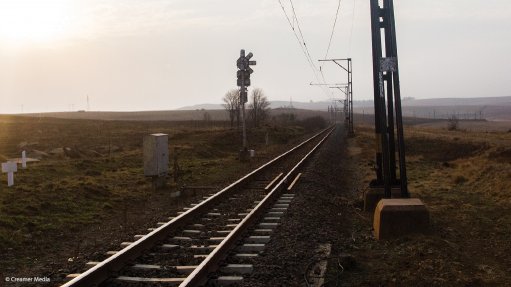
Third-party access has been identified as one of the main reforms to be pursued for implementation under government’s Operation Vulindlela initiative
Photo by: Creamer Media
Transnet Freight Rail (TFR) insists that valuable lessons have been gained from a recent attempt to sell 16 slots on its Cape and Container corridors, which resulted in only one applicant emerging as a potential operator of slots on the Cape Corridor between Kroonstad and East London.
In fact, CEO Sizakele Mzimela dismissed suggestions that the process had failed, noting that it had been a pilot project and had proceeded in the absence of the policy certainty on third-party access that is likely to arise only once the National Rail Policy had been finalised, probably only in 2024.
Third-party access has been identified as one of the main reforms to be pursued for implementation under government’s Operation Vulindlela initiative to unlock growth, investment and job creation.
The proposed sale of rail slots by TFR initially garnered significant interest, with about 90 people having participated in a stakeholder session held at Esselen Park in April.
A total of 19 entities then made formal expressions of interest, despite ongoing concerns about the design of the scheme.
Particular anxiety had been expressed over the two-year duration of the contracts, which was seen as too short to ensure that returns could be made on what could involve significant capital investments in light of limited rolling-stock leasing options.
Likewise, the sale of the slots on a ‘Voetstoots’ basis also raised some concern given the risk of disruption, owing to ongoing theft and vandalism on the rail network, including large-scale cable theft.
Eventually, two companies made formal applications – two for the Container Corridor and one on the Cape Corridor – by the August 31 submission deadline.
On November 25, TFR announced that only Traxtion Sheltam had successfully completed the first stage of the evaluation process, and only in relation to its Cape Corridor submission, as its diesel-locomotive offering for the electrified Container Corridor was not regarded as viable.
Traxtion Sheltam is now required to complete the rest of the application process which entails fulfilling the Rail Safety Regulator requirements and other operational readiness requirements for the contract to begin as planned on April 1.
Should it prevail, Traxtion Sheltam will be able to run three trains a week on the Kroonstad-East London line, which can handle both diesel and electric locomotives, with much of the cargo expected to be in the form of agricultural products.
TFR provided no timeframe for the initiation of another slot-sale process but reported that ongoing discussions were under way with Operation Vulindlela and the Department of Transport (DoT) regarding the most appropriate model for introducing third-party access in future.
The current model draws significantly on the market reforms undertaken by Deutsche Bahn, of Germany, which have been under way since 1994 and where there is significant rail-leasing capacity.
Planning and operations command centre GM Bessie Mabunda said work was under way to adapt the model to South Africa’s specific conditions, while also drawing on reform lessons from markets such as the UK and Australia.
Mabunda added that the initial contract with Traxtion Sheltam would also help TFR in refining its approach and “help us to frame a model that is a lot more appropriate to the environment that we find ourselves in”.
“Transnet does not view the outcomes of this first phase as a failure,” Mzimela stressed, indicating that it had enabled TFR to understand the enablers that were required to implement third-party access.
These insights would also help facilitate further conversations with policymakers with the understanding that policy certainty was likely to be critical to building investor confidence in, and momentum around, the reform process.
“Transnet will continue to engage with relevant stakeholders on third-party access where appropriate, aligning with the work that the DoT continues to undertake towards the implementation of the White Paper on rail policy.”